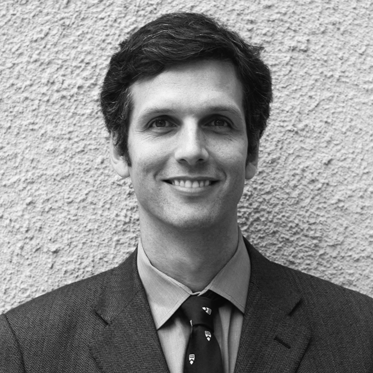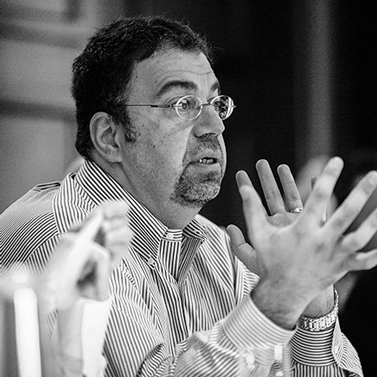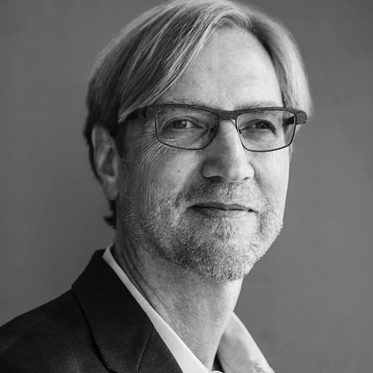By: CIFAR
8 Jun, 2017

In November, Donald Trump was elected president of the United States on an anti-immigrant, anti-free trade platform. Far-right nationalists have staged strong election campaigns in a number of countries, including France, where presidential candidate Marine Le Pen garnered a third of all votes cast. All of these developments come in the wake of concern about increasing inequality and worries about what globalization and automation will mean for workers.
We asked three CIFAR fellows to discuss the current political and economic situation. Daron Acemoglu is a senior fellow in CIFAR’s Institutions, Organizations & Growth program and an economist at the Massachusetts Institute of Technology. Rafael Di Tella is a senior fellow in CIFAR’s Social Interactions, Identity & Well Being program and an economist at Harvard University. Paul Pierson is a senior fellow in the Successful Societies program and a political scientist at the University of California, Berkeley.
In the last year we’ve seen the U.K. vote to exit from the E.U.; the U.S. elect Donald Trump; and a general increase in right-wing nationalism. Are these events related, and if they are what’s the cause?

Rafael Di Tella, Senior Fellow in CIFAR’s Social Interactions, Identity & Well Being program
Rafael Di Tella: I guess a standard starting point is distrust of the elites. There are many dimensions of this, but one that is interesting is disdain for what elites might call “competence.” Part of it is a natural reaction to exaggerated claims some educated people make, e.g., some economists regarding the gains of globalization. But part of it is simply voter rejection of something that has not been very useful to them. Sometimes it is translated into something constructive, such as appreciation of “practical” knowledge based on common sense over specialized education. But very often it is not: voters prefer someone incompetent because of the idea that “at least they won’t (knowingly) screw us.” Like I said, this rejection of competence is just one dimension of populism that seems to matter, and my sense is that it is present more in the cases of Trump and Brexit than in the case of right-wing nationalists.

Daron Acemoglu, Senior Fellow of CIFAR’s Institutions, Organizations, & Growth program
Daron Acemoglu: They are very closely related. In both cases, these events are a culmination of a series of economic and social changes. The U.S. and the U.K. have witnessed productivity gains from technological change and globalization, but these gains have not trickled down to a significant fraction of the population. On the contrary, both processes have created additional hardships for manufacturing workers and areas with a high concentration of manufacturing. At the same time, long ranging societal changes have continued to undermine the existing social hierarchy that placed white males at the top. Combined with the financial crisis, which further eroded trust in institutions, these changes have created the perfect storm for the rise of right-wing populism. By blaming foreigners and immigrants, asking for protection for the jobs that have disappeared, claiming to reinstate the older social hierarchy, and repudiating the elites that presided over the previous decades’ economic changes, this ideology has a natural appeal to the segments that feel alienated, left out and angry.
All of that having been said, we should also not view these political outcomes as inevitable or irreversible. At the end, both Trump’s victory and Brexit passed with small margins. Better ways of dealing with the economic changes of the last several decades and a political equilibrium offering policies more responsive to the concerns of those left behind might have easily taken a few points from the support of these right-wing populist agendas.

Paul Pierson, Senior Fellow in CIFAR’s Successful Societies program
Paul Pierson: I don’t disagree with any of these observations but would suggest a couple of additional points. First, elaborating on Daron’s point, I would stress the importance of cultural and demographic change as well as economic dislocation. The decline in perceived status of working class whites has been a very important catalyst – probably as important as purely economic trends – for right-wing populism. In the United States, support for Trump was closely related to measures of racial resentment.
Second, it isn’t just a matter of broad and impersonal social trends. It would be a mistake to overlook the role of organized efforts to foment and exploit political anger. Many who we would consider “elites” – both in politics and the media – have perceived advantage, whether in profits or votes, from stoking these resentments. This has been, in many instances, a conscious strategy, pursued for many years. In Britain, this often took the form of cheap shots at the European Union – a readily available scapegoat for a host of social tensions and disappointments. In the U.S., it has involved broadsides at government, established institutions in the media and universities, and the slowly increasing inclusion of various social groups, such as women and minorities, which threatens previous status hierarchies. How much of the story is an institutional one – a failure of institutions to meet the challenge of changing circumstances? Are people right to distrust the elites? Are there better institutional responses possible than the ones we’ve seen?
Di Tella: Of course they are right to distrust the elites. There is a tendency by the political system to simplify and oversell what we know. The standard thing is to make rosy predictions about policies that we like and think are on the whole a good thing, but over which we have a large amount of uncertainty. But somehow all the doubts and caveats go out the window when they get into politics. The odd thing is that dissenting voices are given very little room in policy debates. Perhaps it is the nature of how politics works. Perhaps it is something deeper, because I note that such distrust or even shut-down of dissent also takes place in academic circles.
Acemoglu: Yes and no. Yes because the failure of institutions is the failure of elites, and elites have long been silent to the people’s plight. On both sides of the Atlantic, both technological change and globalization have been presented to the people as unadulterated gems, processes from which everybody will benefit. And many in society have had the worst decades in memory in terms of economic gains. This breeds distrust of institutions, and it breeds, somewhat justifiably, distrust of elites.
No because the alternative to the current elites is a less trustworthy, more opportunistic and more corrupt new elite in the form of Donald Trump or Marine Le Pen. The distrust of elites fuels the rise of “big man politics,” or big woman politics in France, where a charismatic leader tramples on institutions and stokes populist, anti-foreigner fervor, but crucially without articulating viable alternatives.
If the distrust of elites led to a more bottom up solution process, it would be desirable, but we haven’t really seen much of it. Perhaps it’s inevitable that the first round of the distrust of current institutions and elites will lead to facile solutions like the ones articulated by Syriza in Greece, Podemos in Spain or Donald Trump in the U.S. Civil society participation in politics does take work and effort.
Pierson: One of the core difficulties of this moment is that our main institutions command less and less respect, in part because of growing evidence of self-dealing amongst the powerful. Yet the evidence remains overwhelming that, however tarnished, core institutions of liberal democracy – including government, universities, and traditional media – have been critical to an extraordinary long-term expansion of opportunities and living standards. These institutions have been essential in promoting the – yes, imperfect – compromises and reliance on – yes, imperfect – scientific knowledge that made those gains possible. Political movements promising payback against elites, but demonstrating contempt for knowledge and core institutions and disavowing the necessity of political and social compromise, are most unlikely to deliver to citizens understandably frustrated by the status quo. As I write this the Republican-controlled House of Representatives in the U.S. just voted to support the top legislative priority of a supposedly anti-elitist Republican president: eliminating health insurance for more than 20 million Americans in order to pay for huge tax reductions for the richest two per cent of the country. Right-wing nationalist Marine Le Pen failed to win the French election, and previously Austria and the Netherlands both rejected similar candidates. Has the tide begun to turn? Whether yes or no, what has to happen next for people to regain trust in governments and other institutions?
Acemoglu: The defeat of Marine Le Pen in the French presidential elections is good news for France, good news for Europe and good news for the world. But it would be absolutely incorrect to think that this signifies a turn of the tide.
The support for anti-immigration in the U.K. and for aggressive, ugly white supremacist policies in the United States are, if anything, considerably weaker than anti-Islam, anti-immigrant fervor in France. In all three of these cases, the commonality is that right-wing populism has been on the rise, and in many ways it has become uglier. But in none of these three societies was there a majority in favor of the most extreme version of rightwing populism. It was a series of mistakes and institutional peculiarities that brought Brexit to the U.K. and the disastrous presidency of Donald J. Trump to the United States.
The situation, read this way, suggests not that right-wing populism has triumphed, but that we do live in a deeply polarized world in which the two poles will continue to battle for supremacy in the next decade and perhaps beyond. We need to be ready for the long fight, and that means understanding the grievances that have fueled support for these non-establishment candidates, while still espousing the core values that make democratic, tolerant and open societies the only game in town for our future.
Di Tella: I think I agree with Daron’s take. Le Pen’s “failure” does not represent a turn of the tide. The fact is that populist candidates have been far more successful relative to what many thought was possible in developed countries. If anything, the French election confirms the view that there are large numbers of people angry with the elites and that we don’t have a clear understanding of this phenomenon.
My sense is that to regain trust in institutions, voters will want to see a different balance of power – between the elites and democratically elected officials – and that will probably require a somewhat different functional distribution of income. More long term, it may also require a change in material aspirations. Most of our democratic and taxation architecture was developed during times of high growth. I thought it would be possible to preserve them in an era of low growth, but I think that was a bit of wishful thinking.
Pierson: A relatively high level of confidence in institutions emerged from a set of unusual historical circumstances. Trust in institutions grew out of very successful efforts to build prosperity in the aftermath of a terrible combination of war and Depression. It seems far easier to generate discontent and disruption than trust. One thing that might help would be a strengthened commitment among political elites to support our core institutions, rather than, as is happening in the U.S., a willingness to damage those institutions in pursuit of short term advantage. These elites also would need to recognize that sustaining these institutions requires more responsiveness to the needs and concerns of those who have been left behind. I wish I felt more optimistic about the prospects for such developments
Notifications